Pascal Quignard's The Hatred of Music is more than a book, it's a codex, a Rosetta stone, a spell from zoe, an elixir that may induce shamanic trances, an archetypology of sound and music
Here's a dropbox link to a free pdf of the English translation:
https://www.dropbox.com/s/3xmglj7t37yzbog/pascal-quignard-the-hatred-of-music.pdf?dl=0
Up until the moment I began to read these treatises, published first in 1996, I was under the impression I had no guide (among literati), no comrade even, for or by, or among the perplexed, to the poetics of music, not one that was thoroughgoing, actually poetic, tough and profound, unafraid of much of the implicit fascism in the concept of audience itself, although I honored various attempts by ethno-musicologists and encyclopedicists, anthropologists & social critics to get close to the truth of the matter, while in my heart knowing that they were either not really aware of how close they were getting to the core, or self-censoring themselves on the brink of the "problem" -- and in the post-modern era one begins to get bullied, mocked, considered a sentimentalist or fool for seeking any general field theory or profundity.
Theophrastus asserted on the contrary that the sense that
opens most widely the door to passion is acoustical perception.
He said that sight, touch, smell, and taste subject the soul to a
less violent distress than that caused, through the ears,
by “thunder and moans.”
Visible scenes stupefy me and expose me to silence which
itself is a song by privation. I have suffered from mutism: a deprived
song. A dance: one sways back and forth. Or one’s head
turns from one ear to the other. Silence is rhythmic.
But most piercing screams, certain crashes overwhelm me
beyond measure, to the point of arrhythmia.
Sounds plunge us into a silence of hearing more torn asunder
than the silence of sight which Horace claims however to be
the first esthetic tearer... Music alone tears asunder.
For each researcher on the origins or music or each scribe who proposed one useful approach that still missed the essential another would arrive missing all the points in superficial estimation of the others. It had become almost impossible for me to read the words of so-called music "critics" -- whose sense of history derived from liner notes of albums and fanzines, where music is fixed inside recorded commodities. Further add to this the horrendously selfish competition among academicians and the deflective and evasive discourses hemmed by self-victimizing political correctitude that tries to divide sound and music into special categories of willful practitioners, Cartesian egos, who all seem equally not to know why or how they make music or how the music creates us. How it is drawn from our own bodies (heart-beat, pulmonation, growth-spurts, infantile gasps) just as it is drawn from mimesis of external sounds, the animals in the forest or seas
The shaman is a specialist in animal roars. The master of spirits
can metamorphose into anyone or anything—although birds
move the fastest and allow him to cross the sea or soar above the
mountains. Birds are the most nomadic of nomads. The shaman
is an accelerator of transport, of time, that is to say of metaphor,
of metamorphosis. Finally he is the most acoustic of the acousticals.
His territory is the air delimited by songs...
The missing link in most cases, the place where the bridge is out, concerns the primordial scenes of what Quignard calls the Acousticals, totemic ancestor sounds -- the sacrifices (the skins of the drums), the noise of sex, the hunt, tribal violence, the resonance of caves, the essence of shamanism, which he recasts in re-verbarium of the antique French tarabust, a noise everyone knows the meaning of without having to discuss -- the very thing the burka of the quotidian bourgeois science of culture covers and pretends is not there but which every animal researcher knows to be the quintessential, perhaps the only important sounds that animals make, relying as it does upon their reproduction. We are at the service of the sounds. And we don't really hear most of the artists we have, let alone hear them in order to hear the sounds that are necessary. But the noise of music will distract us ad nauseam. Since the emergence of the new scientisms and ideological discourses the depth was left to individuals and surfaced only in flashes of the truth in some composers works -- Stravinsky's Rite before and Jani Christou (listen to Mysterion, for example) notably, after -- but only very obliquely in the works of other post-war composers (where the violence is social, referent to Enlightenment ideology) and alluded to with great pretension by industrial occultists -- and occasionally among poets sincerely whose ears didn't get sucked into the vortex of their gaping and vainly gesturing mouths. Pascal Quignard, a writer, musicologist, a musician -- who knows that a muse is an affliction and that "amusement" means to be distracted -- and as a former editor for Gallimard, who read almost everything, classically educated (meaning that he reads/knows the Greek and Latin he cites), trying to fathom the Western traditions from the inside, turns out to be the one who emerges bearing the lantern.
Ulysses, all of a sudden, effortlessly
arched his formidable bow. To test the string he opens his right
hand. When released, the string sang beautifully (kalon aeise),
with a voice (audèn) like a swallow.”
Once again the lyre comes first. The bow comes second.
Ulysses’ bow is like a kithara. The archer is like a citharede. The
vibration of the bowstring sings a song of death. If Apollo is the
quintessential archer, his bow is musical.
The bow is death from afar: inexplicable death.
More precisely: death as invisible as voice. Vocal cords, lyre
string, bowstring are a single string: entrails or nerves of a dead
animal that emit the invisible sound that kills from afar. The bowstring is the first song: the song which Homer says is “like the voice of a swallow.” Strings of stringed instruments are strings-of-the-death-lyre. The lyre and the cithara are ancient bows that fire songs at the god (arrows at the animal)
Perhaps one of the most stunning and resonant of the themes one finds in the book is the recognition of the rites of passage accorded to males who undergo transformation from child into man, from the circle of siblings and mothers, into the cults of hunters, when the boy must take up with an animal spirit, paint the walls of the cave, prove mastery in animal murder, or emerge from the cave metamorphosed, when their voices change and the character of the man, as a being whose life breaks into pieces: one, before, where his range in smooth, soprano, like a woman's and the other side where he has forever lost his voice, croaks, must develop a new voice, or lose organs in order to keep his voice intact. The theme of the castrati, those sent under the knife in order to remain pure of voice, deprived of further masculine functions, those marked men, marked within and without.
The following review (link below) may also be a helpful introduction, covering many of the most important points dealt with in Quignard's treatises. Although I am not sure who wrote this review, I find little to disagreeable and the author informs you that the book is arcane (I would say, hermetic) neither magniloquent nor verbose. In fact, the sentences of Quignard, however tricky, are in fact also pithy, economical, as if Quignard wished not to prolong the affair longer and burden the mind of the reader with excessive noise and redundancy.
http://www.rochester.edu/
https://www.dropbox.com/s/3xmglj7t37yzbog/pascal-quignard-the-hatred-of-music.pdf?dl=0
Up until the moment I began to read these treatises, published first in 1996, I was under the impression I had no guide (among literati), no comrade even, for or by, or among the perplexed, to the poetics of music, not one that was thoroughgoing, actually poetic, tough and profound, unafraid of much of the implicit fascism in the concept of audience itself, although I honored various attempts by ethno-musicologists and encyclopedicists, anthropologists & social critics to get close to the truth of the matter, while in my heart knowing that they were either not really aware of how close they were getting to the core, or self-censoring themselves on the brink of the "problem" -- and in the post-modern era one begins to get bullied, mocked, considered a sentimentalist or fool for seeking any general field theory or profundity.
Theophrastus asserted on the contrary that the sense that
opens most widely the door to passion is acoustical perception.
He said that sight, touch, smell, and taste subject the soul to a
less violent distress than that caused, through the ears,
by “thunder and moans.”
Visible scenes stupefy me and expose me to silence which
itself is a song by privation. I have suffered from mutism: a deprived
song. A dance: one sways back and forth. Or one’s head
turns from one ear to the other. Silence is rhythmic.
But most piercing screams, certain crashes overwhelm me
beyond measure, to the point of arrhythmia.
Sounds plunge us into a silence of hearing more torn asunder
than the silence of sight which Horace claims however to be
the first esthetic tearer... Music alone tears asunder.
For each researcher on the origins or music or each scribe who proposed one useful approach that still missed the essential another would arrive missing all the points in superficial estimation of the others. It had become almost impossible for me to read the words of so-called music "critics" -- whose sense of history derived from liner notes of albums and fanzines, where music is fixed inside recorded commodities. Further add to this the horrendously selfish competition among academicians and the deflective and evasive discourses hemmed by self-victimizing political correctitude that tries to divide sound and music into special categories of willful practitioners, Cartesian egos, who all seem equally not to know why or how they make music or how the music creates us. How it is drawn from our own bodies (heart-beat, pulmonation, growth-spurts, infantile gasps) just as it is drawn from mimesis of external sounds, the animals in the forest or seas
The shaman is a specialist in animal roars. The master of spirits
can metamorphose into anyone or anything—although birds
move the fastest and allow him to cross the sea or soar above the
mountains. Birds are the most nomadic of nomads. The shaman
is an accelerator of transport, of time, that is to say of metaphor,
of metamorphosis. Finally he is the most acoustic of the acousticals.
His territory is the air delimited by songs...
The missing link in most cases, the place where the bridge is out, concerns the primordial scenes of what Quignard calls the Acousticals, totemic ancestor sounds -- the sacrifices (the skins of the drums), the noise of sex, the hunt, tribal violence, the resonance of caves, the essence of shamanism, which he recasts in re-verbarium of the antique French tarabust, a noise everyone knows the meaning of without having to discuss -- the very thing the burka of the quotidian bourgeois science of culture covers and pretends is not there but which every animal researcher knows to be the quintessential, perhaps the only important sounds that animals make, relying as it does upon their reproduction. We are at the service of the sounds. And we don't really hear most of the artists we have, let alone hear them in order to hear the sounds that are necessary. But the noise of music will distract us ad nauseam. Since the emergence of the new scientisms and ideological discourses the depth was left to individuals and surfaced only in flashes of the truth in some composers works -- Stravinsky's Rite before and Jani Christou (listen to Mysterion, for example) notably, after -- but only very obliquely in the works of other post-war composers (where the violence is social, referent to Enlightenment ideology) and alluded to with great pretension by industrial occultists -- and occasionally among poets sincerely whose ears didn't get sucked into the vortex of their gaping and vainly gesturing mouths. Pascal Quignard, a writer, musicologist, a musician -- who knows that a muse is an affliction and that "amusement" means to be distracted -- and as a former editor for Gallimard, who read almost everything, classically educated (meaning that he reads/knows the Greek and Latin he cites), trying to fathom the Western traditions from the inside, turns out to be the one who emerges bearing the lantern.
Ulysses, all of a sudden, effortlessly
arched his formidable bow. To test the string he opens his right
hand. When released, the string sang beautifully (kalon aeise),
with a voice (audèn) like a swallow.”
Once again the lyre comes first. The bow comes second.
Ulysses’ bow is like a kithara. The archer is like a citharede. The
vibration of the bowstring sings a song of death. If Apollo is the
quintessential archer, his bow is musical.
The bow is death from afar: inexplicable death.
More precisely: death as invisible as voice. Vocal cords, lyre
string, bowstring are a single string: entrails or nerves of a dead
animal that emit the invisible sound that kills from afar. The bowstring is the first song: the song which Homer says is “like the voice of a swallow.” Strings of stringed instruments are strings-of-the-death-lyre. The lyre and the cithara are ancient bows that fire songs at the god (arrows at the animal)
Perhaps one of the most stunning and resonant of the themes one finds in the book is the recognition of the rites of passage accorded to males who undergo transformation from child into man, from the circle of siblings and mothers, into the cults of hunters, when the boy must take up with an animal spirit, paint the walls of the cave, prove mastery in animal murder, or emerge from the cave metamorphosed, when their voices change and the character of the man, as a being whose life breaks into pieces: one, before, where his range in smooth, soprano, like a woman's and the other side where he has forever lost his voice, croaks, must develop a new voice, or lose organs in order to keep his voice intact. The theme of the castrati, those sent under the knife in order to remain pure of voice, deprived of further masculine functions, those marked men, marked within and without.
The following review (link below) may also be a helpful introduction, covering many of the most important points dealt with in Quignard's treatises. Although I am not sure who wrote this review, I find little to disagreeable and the author informs you that the book is arcane (I would say, hermetic) neither magniloquent nor verbose. In fact, the sentences of Quignard, however tricky, are in fact also pithy, economical, as if Quignard wished not to prolong the affair longer and burden the mind of the reader with excessive noise and redundancy.


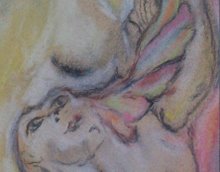



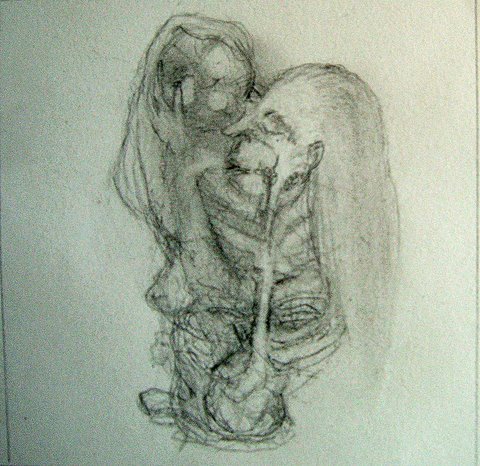
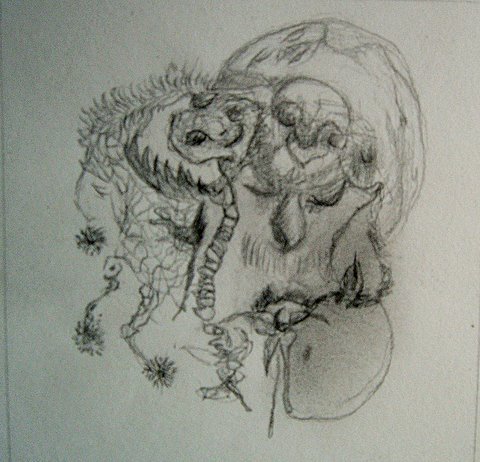
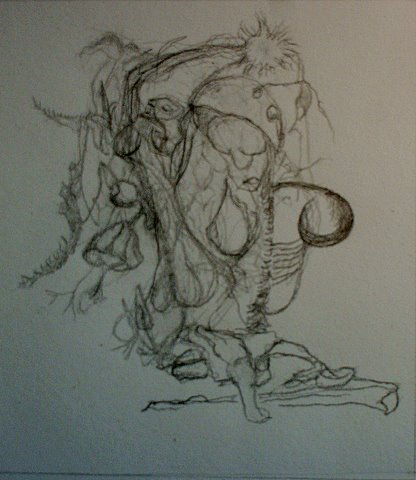
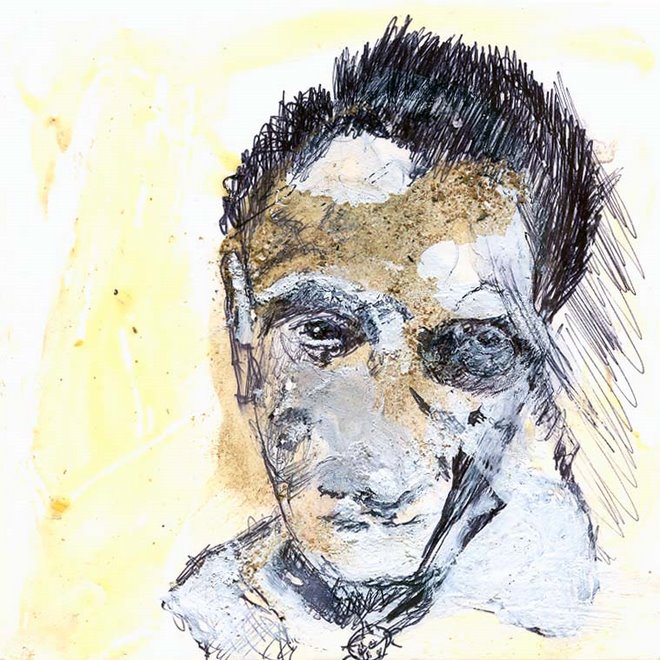
No comments:
Post a Comment